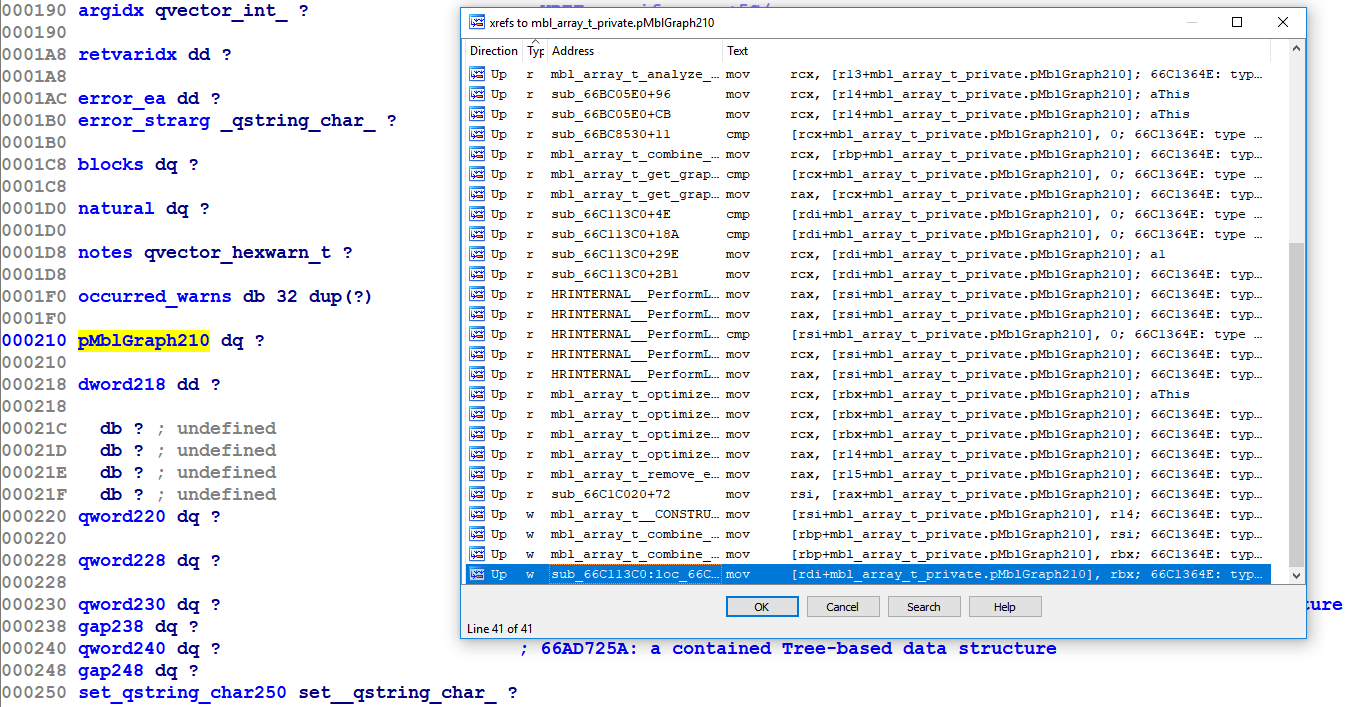This question has already been asked here but for some reason it was deleted, as "dead".
I will try to explain again. I have a specific data type. It is used in a large number of disassembled functions. This type has a field whose purpose is unknown. I need to find all references to this field in the entire application.
I can belive to @Biswapriyo, that this behavior is by design and I cannot find xrefs to the field of data type. Ok, got it. Now I need to find a way to do that! :)
Perhaps there are any plugin? I don't understand why this can be difficult, since to perform this action, it is enough to generate a .c file, open it in notepad and press Ctrl+F. I want this functionality to be in IDA Hex-Rays.
